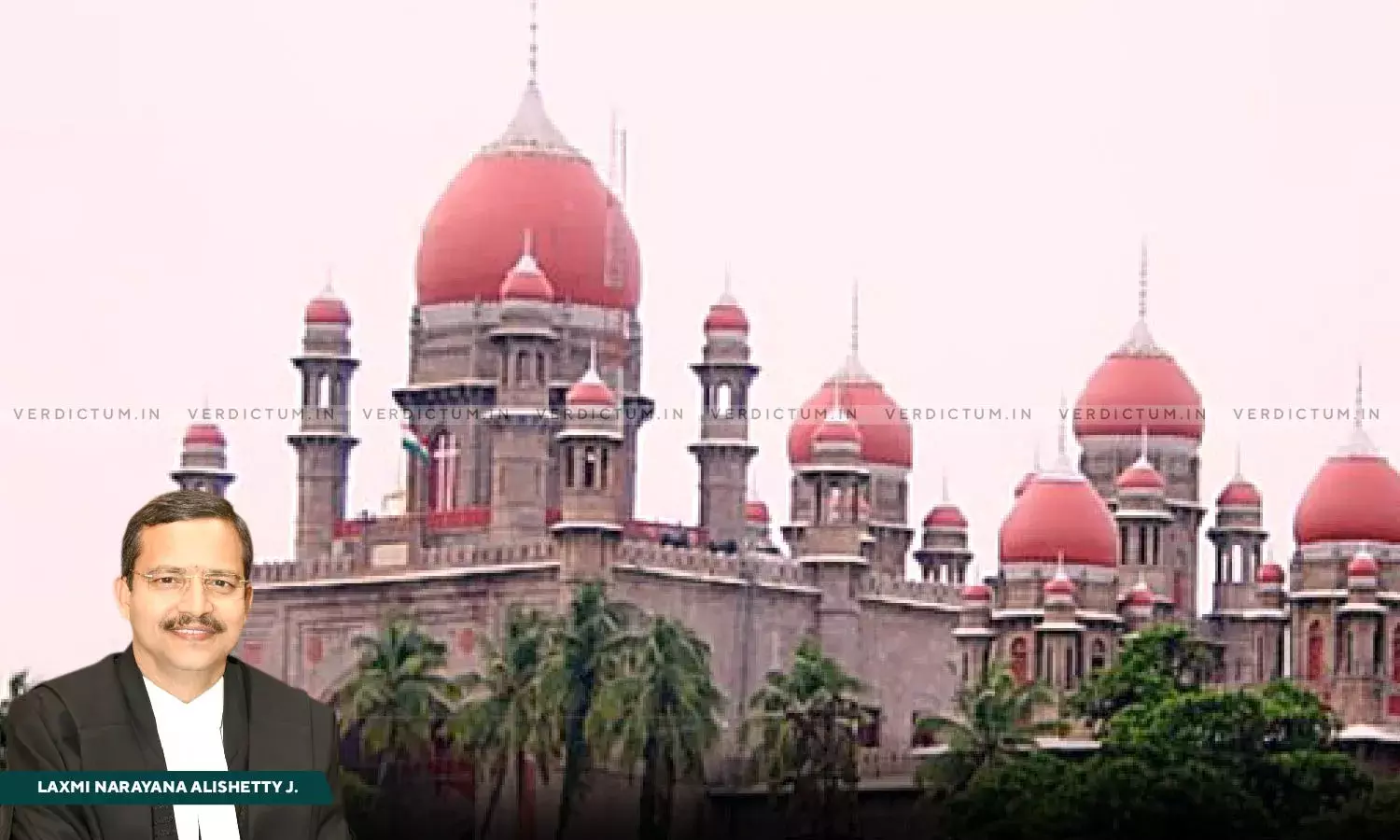Court Cannot Interfere With Punishment Awarded By Disciplinary Authority Unless It Is Shockingly Disproportionate: Telangana HC
The Telangana High Court has reiterated that the scope of interference by the High Court with a punishment awarded by a disciplinary authority is very limited.
In that context, the Bench of Justice Laxmi Narayana Alishetty observed that, "the scope of interference by this Court with the punishment awarded by a disciplinary authority is very limited and unless the punishment appears to be shockingly disproportionate, the Court cannot interfere with the same."
The petitioner, a retired Sub-Registrar Grade-II, filed a writ petition seeking to set aside an impugned government order and related proceedings pertaining to disciplinary action taken against her. Initially appointed as a Section Writer in 1971, she was later promoted to Junior Assistant, Senior Assistant, and finally Sub-Registrar Grade-II in 2004. She retired on January 31, 2010, after 39 years of service. Just 1½ months before her retirement, she was issued a charge memo on November 5, 2009, alleging misconduct and causing a financial loss to the government. The petitioner argued that this charge memo was illegal and violated principles of natural justice as it was issued without providing the necessary documents required to prepare her defense, contrary to the APCS (CCA) Rules.
Despite her repeated requests for the relevant documents, the 3rd respondent appointed an enquiry officer without considering her explanation. The enquiry process was further complicated when, during the hearing on August 26, 2014, the presenting officer acted as a witness against her, and she was not afforded the reasonable opportunity to cross-examine or review the necessary documents. The enquiry concluded with an ex-parte report reducing the financial loss initially charged. Subsequently, the 1st respondent imposed a punishment of a 50% permanent cut in her pension and ordered the recovery of the stated financial loss.
The petitioner contended that the disciplinary proceedings were fundamentally flawed due to procedural lapses and lack of fairness. She maintained that she was not given a fair chance to defend herself, and the necessary documents were not provided in a timely manner, thereby violating the principles of natural justice. In contrast, the respondents claimed that the petitioner was given sufficient opportunities to present her defense and argued that she delayed the process by continuously requesting documents. They asserted that the enquiry and subsequent punishment were conducted fairly and in accordance with the rules.
The High Court observed that, "Petitioner failed to explain as to what prejudice is caused to her because of non-supply of documents, except general statement made by her in her representations. Further, petitioner filed some of the challan copies relating to payment of meager amounts. Several charges relating to deficit collection of stamp duty and registration fee pertaining to various documents were held proved, however, there is no explanation from the petitioner on that aspect. It amounts to admission of charges proved against the petitioner."
Accordingly, the writ petition was dismissed.
Case Number: WP (TR) No. 6221 of 2017
Click here to read/download the Judgment












